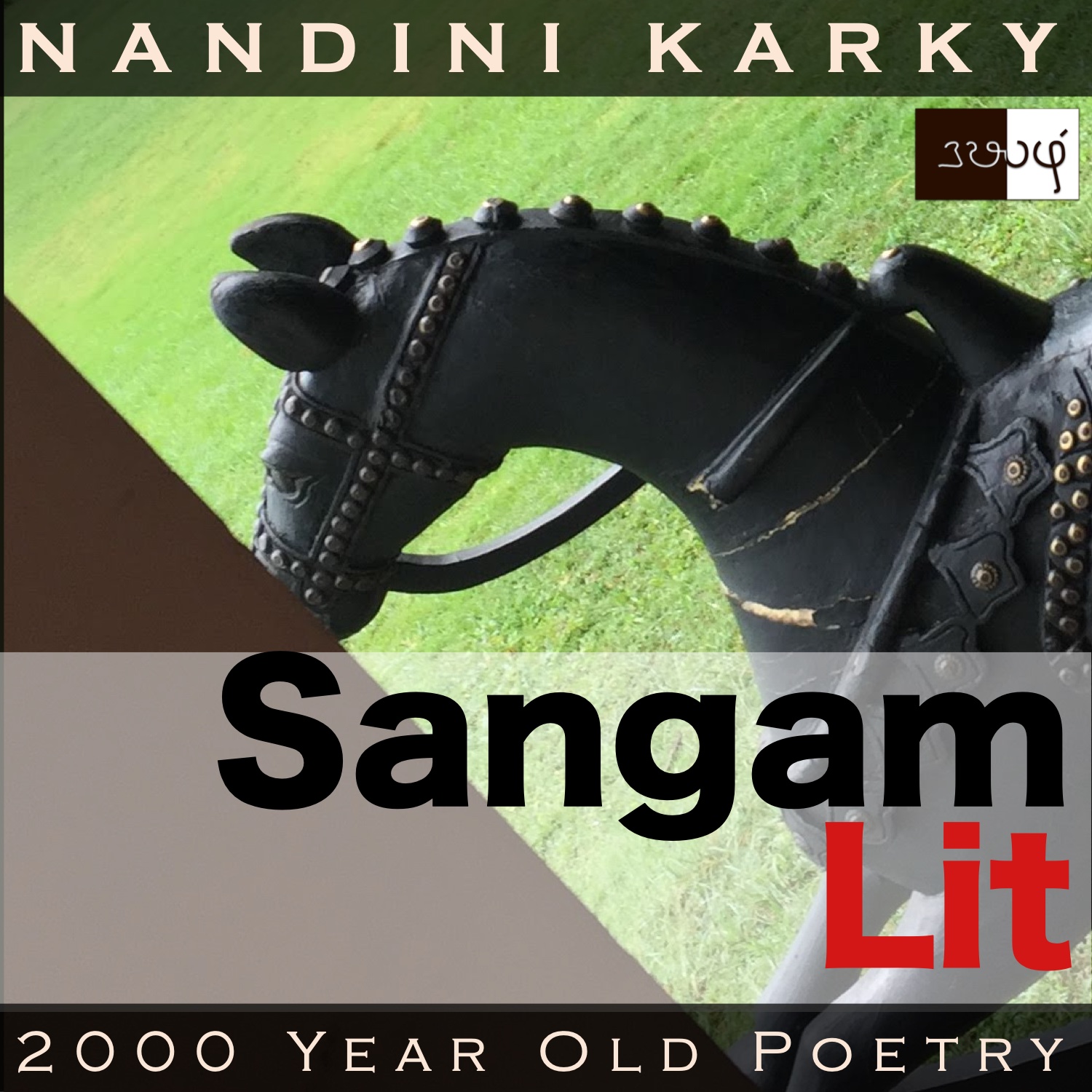Podcast: Play in new window | Download
Subscribe: Apple Podcasts | Spotify | Amazon Music | Android | iHeartRadio | TuneIn | RSS | More

In this episode, we perceive how love distorts time, as depicted in Sangam Literary work, Kurunthogai 32, penned by Alloor Nanmullaiyaar. The verse is situated in the mountains of ‘Kurinji’ and speaks in the voice of the man to the confidante, seeking her help to further his relationship with the lady.
காலையும், பகலும், கையறு மாலையும்,
ஊர் துஞ்சு யாமமும், விடியலும், என்று இப்
பொழுது இடை தெரியின், பொய்யே காமம்:
மா என மடலொடு மறுகில் தோன்றித்
தெற்றெனத் தூற்றலும் பழியே;
வாழ்தலும் பழியே-பிரிவு தலைவரினே.
Time and shame intersect in this terse verse! Opening with ‘காலையும், பகலும்’ meaning ‘morning and noon’, the verse talks about the beginning segments of a day in Sangam life. Continuing, the focus turns to ‘கையறு மாலையும்’ meaning ‘the evening of helplessness’ and ‘ஊர் துஞ்சு யாமமும்’ meaning ‘the midnight hour when the town sleeps’. When we talk of a day, we think of ‘dawn’ as the start, but curiously here, ‘விடியல்’ or ‘dawn’ ends these fragments of the day. From contemplating about time, the verse turns in the direction of intentions in ‘மா என மடலொடு’ meaning ‘taking a palmyra horse to be a real one’ and brings to spotlight the custom of ‘Madal eruthal’ or ‘Madal oorthal’ that we have seen in other Sangam poems. In ‘தூற்றலும் பழியே’ meaning ‘ridicule is a shame’ and ‘வாழ்தலும் பழியே’ meaning ‘living is a shame’, the paths to reproach and guilt are outlined. Ending with the words ‘பிரிவு தலைவரினே’ meaning ‘if parting were to come my way’, the verse invites us to walk within and listen with empathy!
A.M & P.M and the paths to shame – Isn’t it an odd combination? The context reveals that the man had met a lady and fallen in love with her. But, as custom dictated then, the man had to win the confidence of the confidante to further his relationship with the lady. Even after repeated requests, the confidante was not relenting to the man’s attempts. So, one day, when the confidante was about to walk away, the man says to her, “Morning, noon, helpless evening, sleeping town’s night, and dawn – If someone were to know the passing of these parts of the day, then their love is but a lie! If I were to appear on the streets, riding a palmyra horse as a real one, the clear ridicule would bring dishonour; On the other hand, if I were to live parted away from her, that would be a disgrace too!” With these words, the man declares his deep love for the lady and how if the confidante were not to change her mind, he sees only a drastic course of action ahead!
Now, for the nuances! Talking about the parts of a day, the man starts his conversation with the confidante. He mentions the morning and noon, and then follows this with ‘an evening full of helplessness’. Let’s pause and consider why this part of the day has been etched with this descriptor. In many other Sangam poems too, we have seen how the evening time is perceived as one filled with angst for parted lovers, and perhaps that’s why the man adorns the evening with this adjective. Moving on, he talks about the night when the town sleeps and from this, we understand the night is a time when others sleep but not those in love, who are separated. Finally, the man talks about the dawn, revealing to us how Sangam people divided the day into these five parts. But, why is he mentioning each of these parts? Only to say that if anyone were to accurately know when one part of the day transitioned into the next, then they surely are not in love. This statement seems to say that being in love is being totally oblivious to time. And with that, the man tells the confidante that it’s precisely that state he finds himself in!
Turning away from these reflections on time, the man hints on his intention to ride the palmyra horse and informs the confidante that if he were to do that, people would ridicule him and point to the lady as the reason for this humiliation and mock her as well. He concludes that if he were to do that, disrepute would follow him and the lady. But, if he were to not do that, and live without the lady all his life, that would bring greater disrepute, he adds. And in a hidden way, he hints to the confidante that the only course of action left to him was to seek a dire end. Hearing this, the confidante will hopefully understand the deep love in his heart and help him further his relationship with the lady. What a unique custom of having a custodian for the lady’s love! Focusing on the other segment of the verse that talks about the parts of the day from a lover’s perspective, I smiled when I read it first. This is because, in one of those mysterious coincidences, this very morning, my son was talking about a series episode, featuring imaginary planets, and how in that, seasons change between summer, winter, fall and rain in a single day. Fusing this futuristic idea with parts of a day from the eyes of the past, I wonder if someday we would find planets, where each part of the day extends a month, and hear the Sangam voices of those in love tell us that’s how an evening in Earth’s day feels to us!




Share your thoughts...